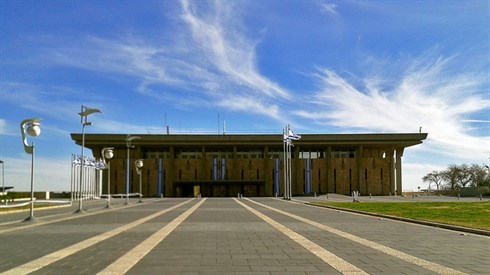- Halacha
- General Questions
1904
Question
"Life is a journey, not a destination." People say such a thing in order to convey the message that life should be lived fully in the moment, all the time, and that we’re not searching for happiness or fulfillment sometime, someplace, far away.
Is this a Jewish concept? If so, how do we know?
Also, what about challenges that happen in life? Am I supposed to enjoy them? Accept them? But the truth is, when something truly is challenging, I’m hoping it will be over as fast as possible and I can get on with life as it was before... how does this all work together?
Thanks for your time,
Joe
Answer
Shalom Joe,
Judaism has been around for more than 3,700 years and therefore is not obligated to any quote attributed to Ralph Waldo Emerson or anyone else. Nevertheless, he may have been referring to an idea which is very Jewish, and is worded nicely by Rabbi A.I. Kook (Orot HaTshuva 5, 6): that nobody is perfect, but the “strive for perfection” (what may be called: the journey) is as perfect as man can get. In other words, nobody, except God, ever achieves perfection (what may be called: destination), but someone intent on eternal improvement is as perfect as man can get. That doesn’t mean not to set goals here and now, but to the contrary, to continuously set and attempt to achieve and fulfill one’s goal, and then set another one… There’s importance in each tree, which together comprise the forest.
Living an idealistic and Godly life of Torah and mitzvot (=clearly defined individual Godly actions and goals) is meant to bring happiness and fulfillment, and even Godliness in this (!) world. The Rambam (Mlachim 12, 2; Tshuva 7, 1) explains, that’s why the Torah doesn’t talk a lot about the world-to-come, because we are meant to focus on improving this world, and in our lifetime, what’s called “Tikun Olam”.
The challenges (or “journeys”) in life are meant to fortify us, and help us realize our potential. Choosing good, not bad; giving priority to long-term pleasure as opposed to short-term pleasure, etc., is what life’s about. It’s that free will and idealistic discipline that differentiates between man and animal, in how to react to the challenges which are presented (“hashgacha pratit”) specifically to man, and not to animal. This is what Rav Soloveichik calls: to destine one’s fate.
Challenges (or “journeys”) are a central part of life, and not meant to “get over asap”, to “get on with life”. For challenges, are life itself! On the other hand, there is also a clear and defined destination: “Godliness”, and the closer we are to it, the better.
With Love of Israel,
Rav Ari Shvat

Afraid of death
Rabbi David Sperling | Nisan 27, 5783
Jewelry for men
Rabbi Moshe Leib Halberstadt | Adar 21, 5770

Where (At what location) does the "Holy Day" Start?
Rabbi David Sperling | Sivan 23, 5784

Why is homosexuality forbidden in the Torah
Rabbi Ari Shvat | Av 8, 5784

Status of Pareve Food cooked in a meat pot
Rabbi David Sperling | Tevet 3, 5775

Do non-Jews or non-Noahides go to heaven?
Rabbi Ari Shvat | Cheshvan 7, 5779

cutting nails during omer
Rabbi David Sperling | Nisan 29, 5773

Adopt Jewish or non-Jewish children, yichud & hugging
Rabbi Ari Shvat | Av 30, 5777

Bedikat chametz
Rabbi David Sperling | Nisan 11, 5785

Which Prophets did Israel kill?
Rabbi Ari Shvat | Adar 25, 5785
Separate beds while niddah
Rabbi Gideon Weitzman | Nisan 13, 5785






